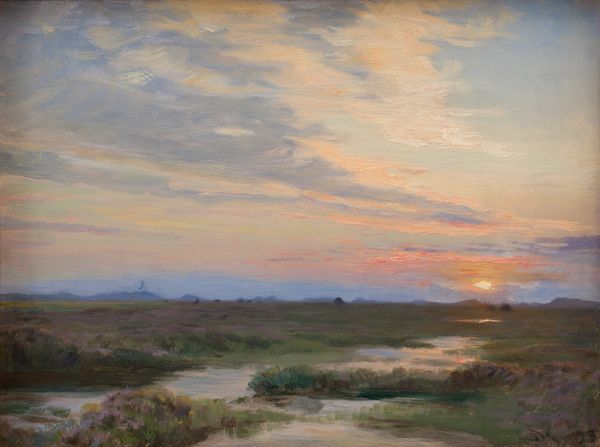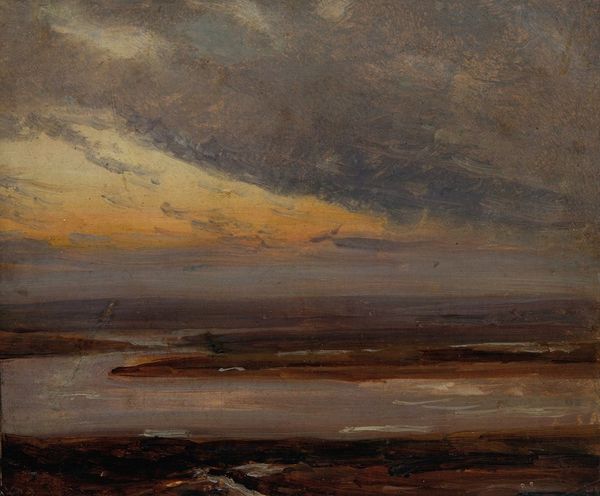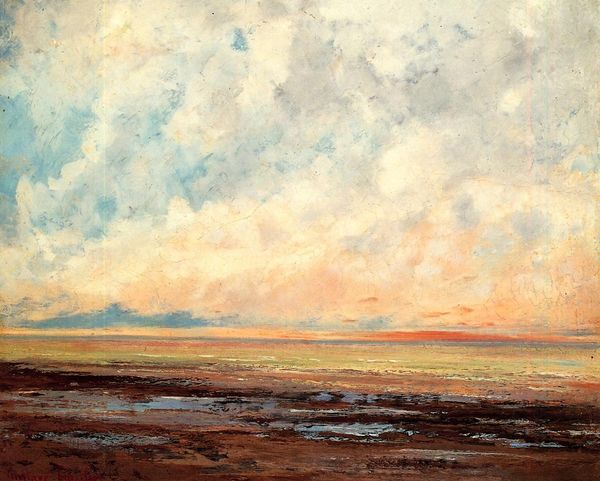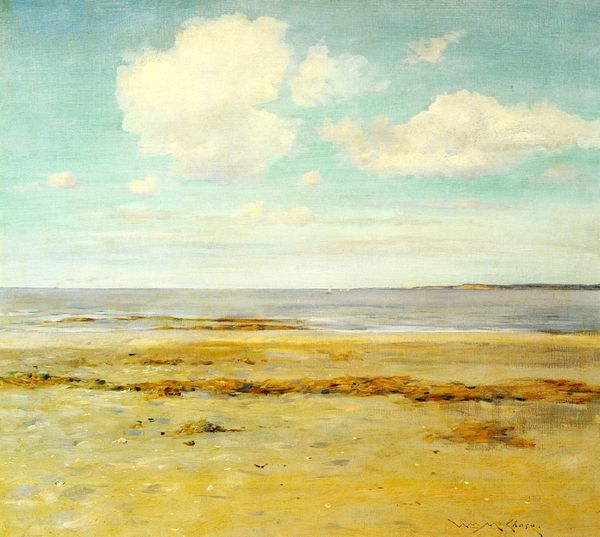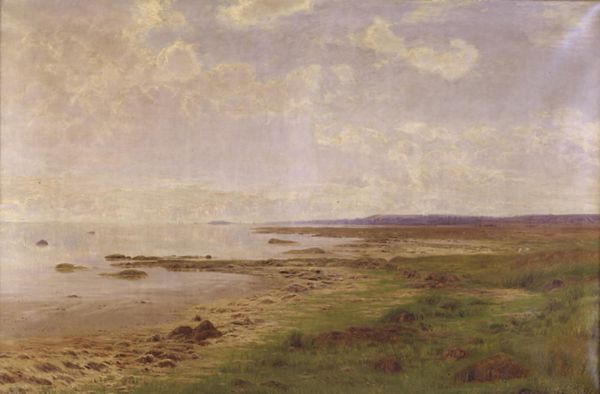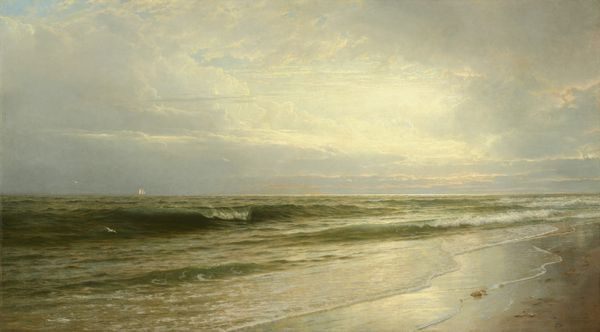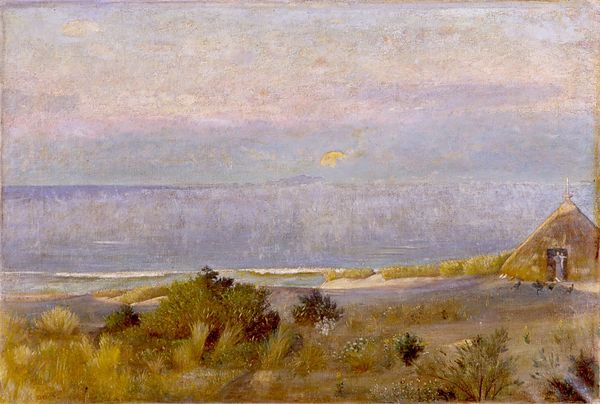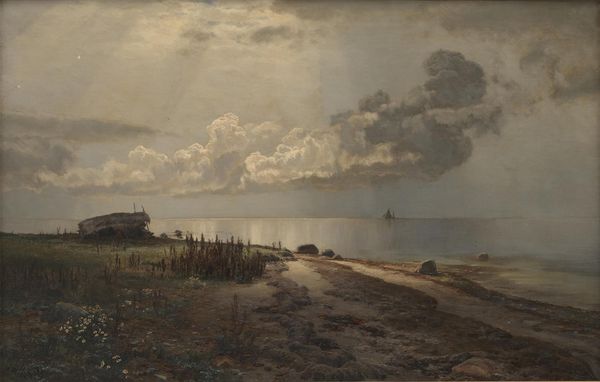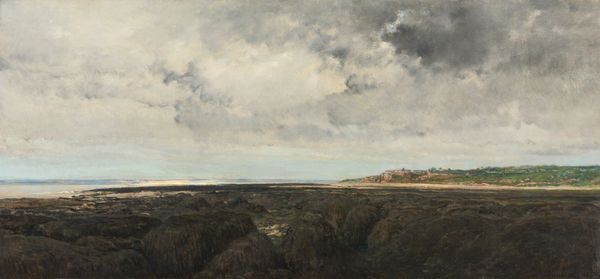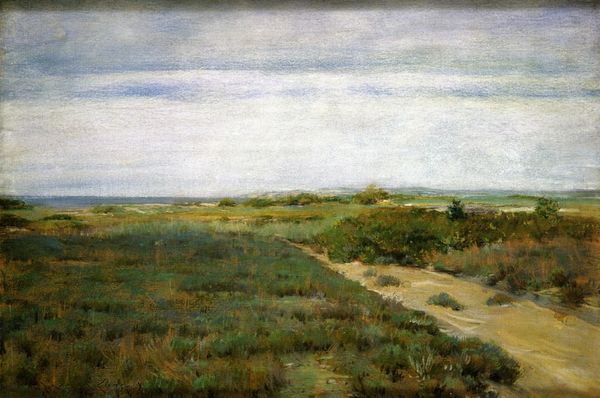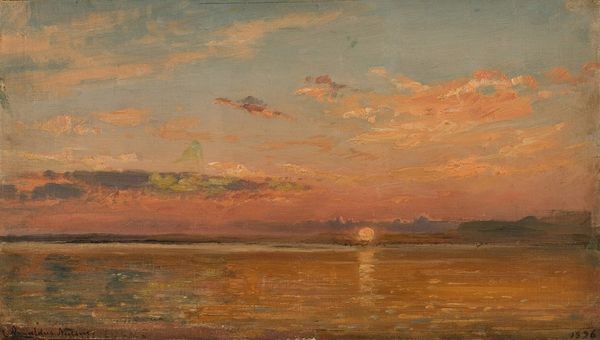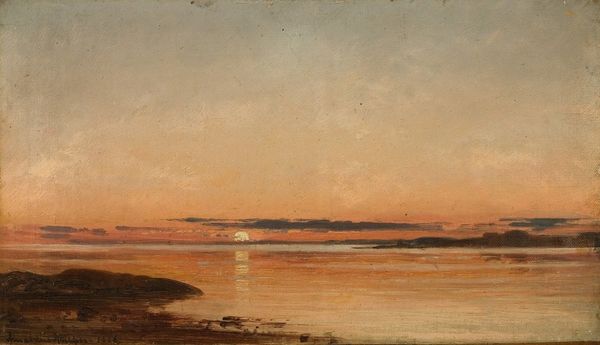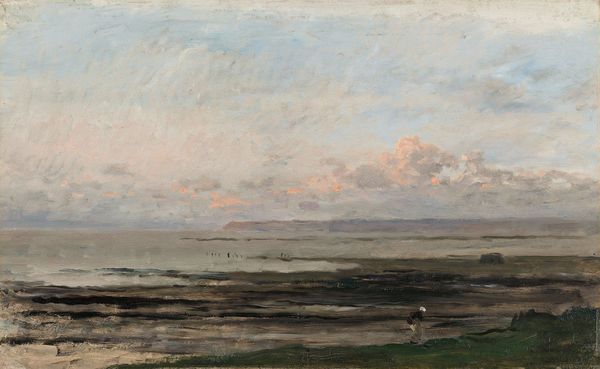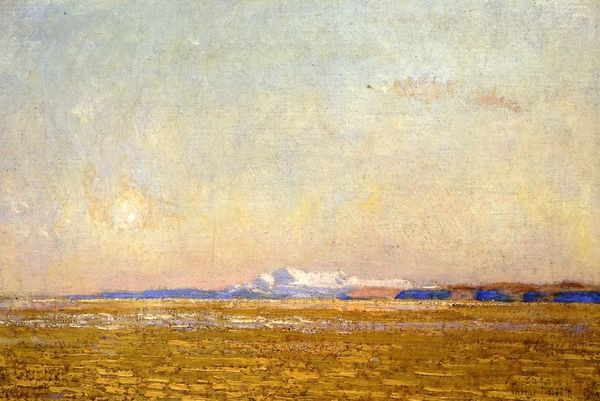
Dimensions: 137.5 x 71.5 cm
Copyright: Public domain
Editor: This is Isaac Levitan’s oil painting, “Marsh at Evening,” from 1882. It has a really quiet, almost melancholic feeling. There are so few distinct objects; the land blends into the sky in this hazy way. What draws your eye when you look at it? Curator: The ambiguity is key, isn't it? Think about what a marsh represents: transition. Neither land nor water, it's a liminal space, ripe with symbolic potential. Now, look at the light. What feeling does that evoke? Editor: I feel a sense of longing…almost a lonely feeling, like watching the end of something. Curator: Precisely. Sunset is a universal symbol for endings, closure, but also for hope of renewal. The way Levitan renders the reflections in the water... do those small pockets of light seem hopeful to you, or something else? Perhaps fading memories? Editor: Fading memories… that's interesting, because the painting has a soft haziness that makes me feel like I'm seeing a distant past. Is that something other people pick up on too, do you think? Curator: The haze could represent not just atmospheric conditions, but the blurring of time, a longing for an idyllic past, a feeling potent during the Romantic era when this was painted. Also consider how the flatness amplifies feelings of melancholy through a symbol of being "grounded," stuck. This landscape reminds viewers of being confined or limited to one area of reflection or growth. What did you make of the limited color pallette, how does this reflect Russian art during this period? Editor: It's certainly not vibrant like other landscapes that I have studied! I guess the muted palette works to communicate sadness. I can also imagine Russian serfs finding symbolism from feeling 'stuck,' such as serfdom itself during the Romantic Era? Curator: Excellent observation! These poignant landscape features encourage introspection and the embrace of complexity, which artists and their patrons of the time appreciated deeply. Editor: This was really insightful. I hadn’t considered the cultural significance of a marsh or how those watery reflections echo a much larger cultural memory! Curator: I’m glad to share. Symbolism is just about connecting personal emotions with universal experiences represented across time!
Comments
No comments
Be the first to comment and join the conversation on the ultimate creative platform.
